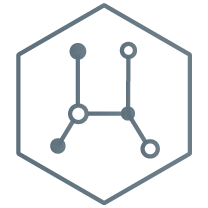
Project Description:
Chronic stress is a significant contributing factor in central nervous system disorders, including depression and post-traumatic stress disorder. These conditions are a major public health problem and carry an annual economic burden in excess of $125 billion. Available drugs for major depression, which are primarily monoamine reuptake inhibitors, are ineffective in 50% of patients. Current drug therapies for PTSD are repurposed antidepressants and anti-anxiety drugs that are only modestly effective, produce undesirable side effects, and offer limited relief. These findings indicate that a new approach to treatment can potentially improve clinical outcomes. Elevated vasopressin expression in the brain has been observed in depressed humans, in veterans with PTSD and in rodent models of depression and anxiety. In this project, we will characterize vasopressin function in preclinical models of stress-related disorders and test the ability of vasopressin antagonists as an intervention strategy to prevent the adverse effects of chronic stress on brain function and behavior.
Project Year:
2010
Team Leaders:
Ned Heindel, Ph.D., Chemistry
Shifang Lu, Ph.D., Biological Sciences
Undergraduate Students:
Larese Wilson-Carter
Laurie Alexander





